6 Causes of Burning Mouth Syndrome
-
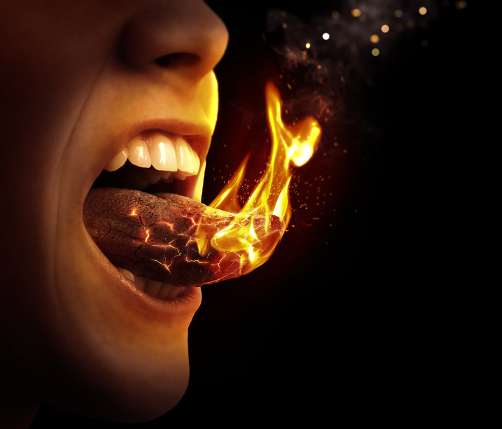
If you’re experiencing a painful, burning sensation on your tongue, lips, or anywhere else in your mouth that doesn’t seem to go away, you might be suffering with a condition called burning mouth syndrome (BMS).
Also referred to as burning tongue syndrome, BMS affects women more often than men (as much as seven times more often), and the associated pain tends to worsen throughout the day. Most BMS sufferers are middle aged, though the condition can be present in those who are younger. Although it’s not an overly serious health issue, burning mouth syndrome can be nonetheless problematic to live with day in, day out.
The exact cause(s) of BMS is not known, though there are a number of factors that have been linked with the condition. Here are six potential causes of burning mouth syndrome:
-
1. Dry Mouth
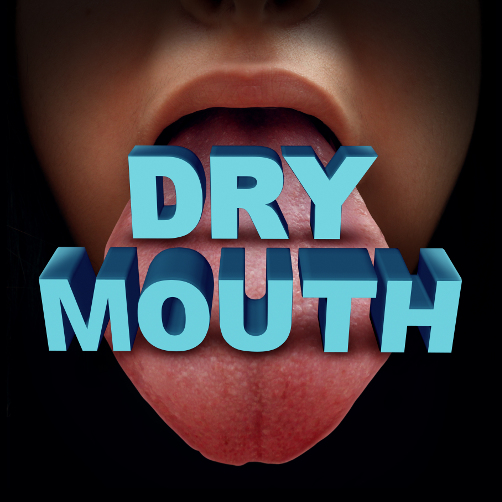
Burning mouth syndrome can be a side effect of dry mouth, a common oral health issue. Dry mouth has its own set of causes, including the use of certain medications (antihistamines and decongestants), cancer therapies (chemotherapy and radiotherapy), medical conditions, stress, etc.
Tip: If you suffer from dry mouth and are experiencing burning mouth symptoms, try sipping on liquids throughout the day or using artificial saliva to try and quell the pain. If your dry mouth is chronic, you will need to treat the underlying cause. Speak with your dentist or doctor about treatment options.
-
2. Nutritional Deficiencies

Nutritional deficiencies caused by poor dietary habits can impact health in a variety of ways. Deficiencies in iron, folate and/or vitamin B complex have been associated with burning mouth syndrome. Treatments for burning mouth syndrome may include supplements of B vitamins and minerals like zinc and iron.
Tip: If nutritional shortfalls are the cause of your burning mouth syndrome, it’s likely that the deficiencies are impacting you in other ways. Speak with a nutritionist about how to get the most out of your diet for maximum healthful benefit.
-
3. Menopause
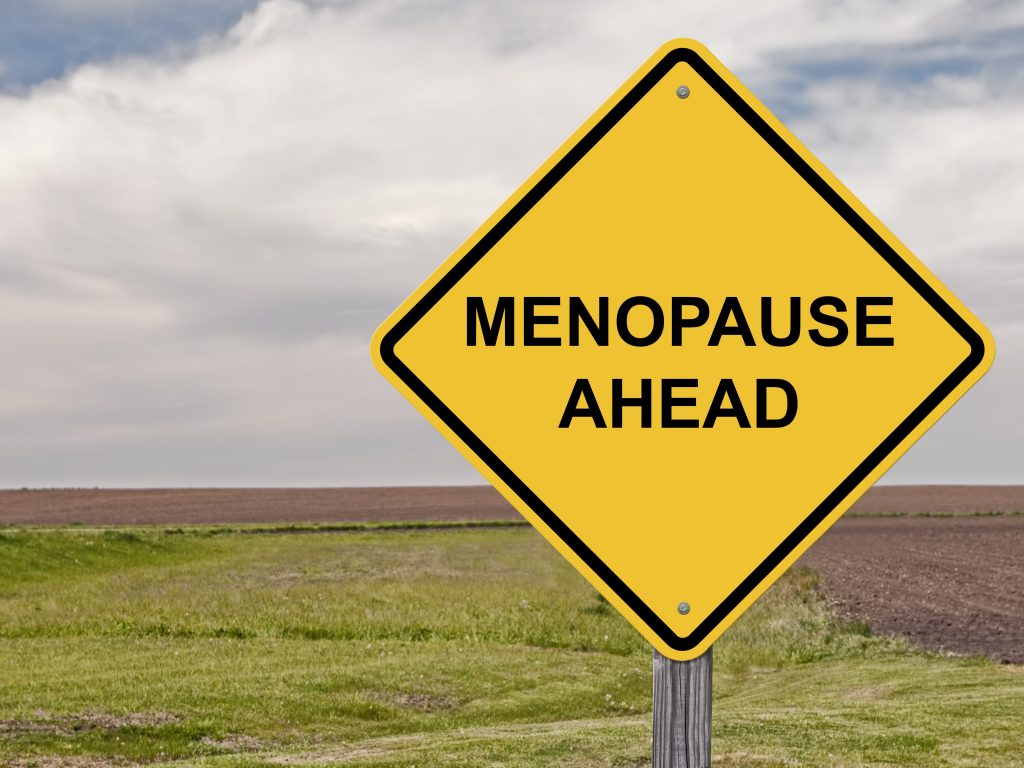
The hormonal changes associated with menopause have been linked with burning mouth syndrome, perhaps suggesting why female sufferers outnumber males by a ratio of 7 to 1.
Tip: If the burning mouth is too much to bear, ask your doctor about hormone replacement therapy. However, keep in mind that hormone replacement therapy is not a guaranteed fix for burning mouth.
-
4. Psychological Problems

Psychological problems like stress and anxiety put you at greater risk for a number of health problems, including burning mouth syndrome. Although they are not viewed as a direct cause, it is possible that such conditions are capable of aggravating BMS. For example, stress and anxiety have been linked with dry mouth, which in turn is a cause of burning mouth.
Tip: If you are feeling stressed or are dealing with high anxiety or depression, don’t wait for physical manifestations of pain before seeking help. Speak with your doctor or a psychologist about your options in tackling the source of your psychological concerns.
-
5. Oral Thrush
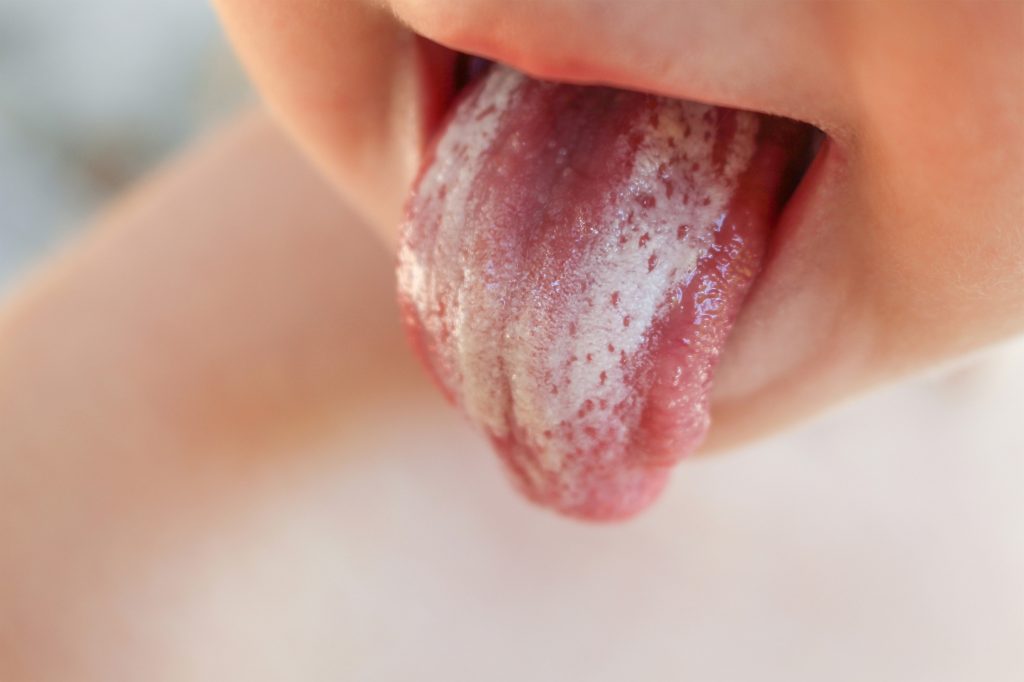
Oral thrush is a type of fungal infection often affecting denture wearers, infants and people with weakened immune systems. The most common type of human fungal infection, it causes slightly raised plaques to develop on the surface of the tongue or the back of the throat. It can cause a burning sensation in the mouth that is exacerbated by highly acidic or spicy foods. Treatment of thrush should alleviate the associated burning mouth issues.
Tip: If you wear dentures, it’s important that they fit well and are cleaned regularly. Failure to ensure a good, clean fit could cause gum irritation that results in thrush. Smokers are also at greater risk, so if you wear dentures and smoke, you’re particularly susceptible to oral thrush and the accompanying burning mouth sensation.
-
6. Diabetes
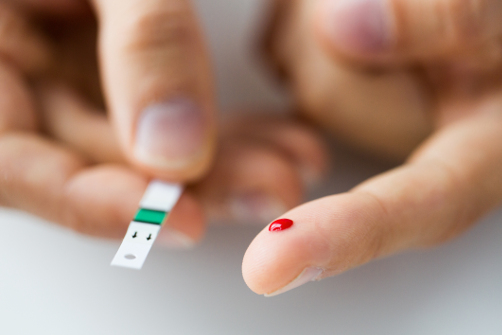
People suffering with diabetes are at risk for a number of related health issues, including oral infections. Diabetics are more at risk of developing oral thrush which can cause BMS. Diabetes also plays havoc with vascular health, which can impact the small blood vessels of the mouth and create a lower threshold for pain.
Tip: Careful management of blood-glucose levels is essential for staving off all sorts of health problems, including burning mouth syndrome. Speak with your doctor about the best way to manage your condition.









